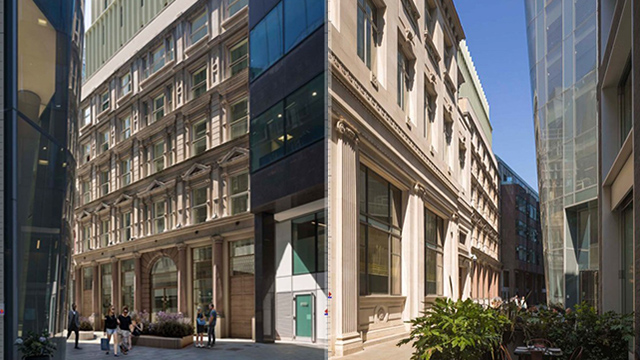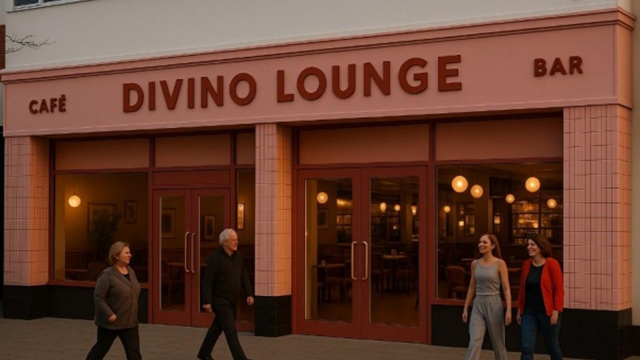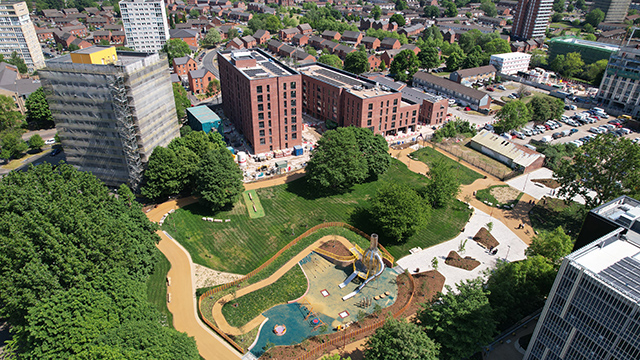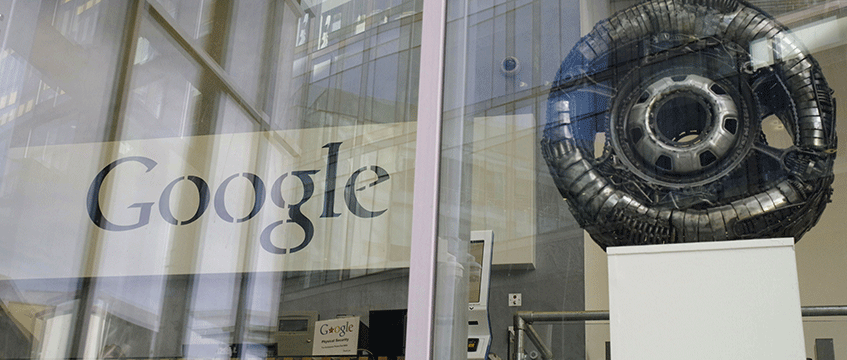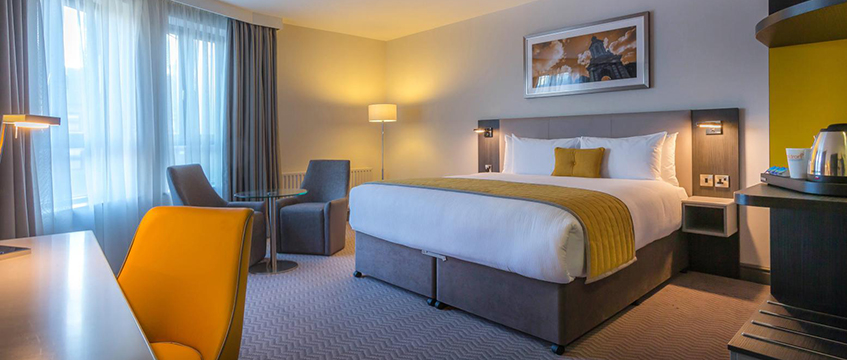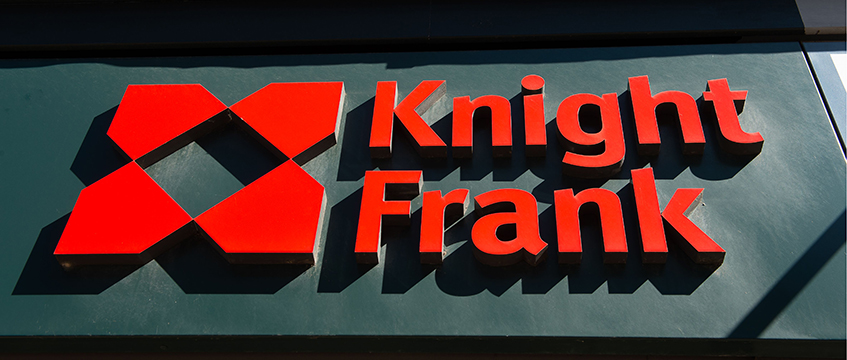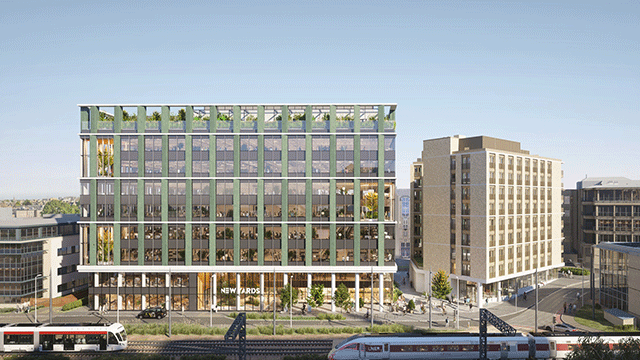Cushman & Wakefield’s move to buy the commercial arm of its Irish affiliate Sherry FitzGerald this week is part of C&W’s broader desire to capitalise on the booming Dublin market.
Some of the world’s biggest tech companies such as Google and LinkedIn are committing to major occupational deals while the investment market is also seeing strong volumes.
George Roberts, C&W’s UK and Ireland head, says he sees “a strong growth story in Ireland”, having taken full ownership of the business it bought a 20% stake in two years ago.
Roberts adds: “Why take on the remaining equity? We are seeing an increasing appetite from our clients to want to do more there, whether that is occupiers expanding into Ireland, or investors increasingly seeing it as an interesting market.”
In total, nearly 2m sq ft of office leasing deals were signed in Dublin in the first half of 2018, following a record year in 2017, when leasing activity hit 3m sq ft.
Meanwhile, investment into Ireland’s commercial property market has more than doubled in the past year, reaching €1.85bn (£1.65bn) in the first half of 2018, according to CBRE.
Roberts says a range of factors is driving the demand. “It is a combination of the Irish economy growing, the talent pool available in Ireland and a significant investment from the tech sector. Brexit has also helped Ireland.”
‘Phenomenal’ expansion
Some of C&W’s biggest clients have signed significant property deals in Dublin. In the first half of 2018, Google signed the largest commercial deal of the six-month period, buying the entire 240,000 sq ft Bolands Quay development from NAMA for €300m for its own occupation.
Other significant moves by US technology companies include LinkedIn’s lease of 150,000 sq ft at IPUT’s One Wilton Place – the second-largest office leasing deal in 2018 so far. It is the company’s first purpose-built office outside the US and the company’s new EMEA headquarters.
Michael Healy, head of tenant representation at Savills Ireland, says: “A lot of the technology companies, the US tech companies that came into Dublin a number of years ago, took a lot of space then but they started out small. All of them are now expanding at a phenomenal rate.”
WeWork has also opted to launch in Ireland this year to meet some of this demand. It is understood the flexible office provider has recently secured a 122,000 sq ft lease at Marlet Property Group’s Charlemont Exchange and signed Amazon to anchor the space it has taken. With this latest deal, its sixth in the city this year, WeWork has cornered around 400,000 sq ft in Dublin.
Patrick Nelson, WeWork’s European vice-president for real estate, says: “We’re expanding rapidly all around the world, and felt the time was right to expand to Ireland. We’ve had incredible success throughout the UK, where we have 24 open locations in London and two in Manchester – and continue to grow at pace there.
Expanding quickly
“We’re expanding quickly here in order to fulfil the demand. This is not just for SMEs, freelancers or start-ups. We’ve seen a great amount of interest from large corporate companies wanting space in Dublin.”
US technology companies are expanding or entering Dublin for the first time for a combination of reasons including its solidarity with the European Union, something that is considerably less certain in London.
Brian O’Driscoll, Qualtrics’ EMEA head of finance, argues that the attractively low 12.5% corporate tax rate which tech firms are able to take advantage of is not the only factor. “A lot of the US companies are scapegoated for coming purely for tax reasons but access to the Common Market, in an English-speaking country, with a vibrant tech scene, a deep pool of talent and a high standard of living is what makes Ireland attractive to overseas investors.”
The $2.5bn (£1.91bn) US data analytics company, which first moved to Dublin in 2013, is set to double its office space by 2020 to 60,000 sq ft.
The companies are also now able to negotiate good deals, as larger developments have come on to the market. Healy explains: “Rent values are not skyrocketing because a lot of landlords are chasing the Googles of this world. The deals they are getting are relatively good. Technology companies are expanding their businesses now as Dublin has more office space.”
Lessons from 2008
So is the current property boom, which came after one of the most dramatic crashes any country’s real estate market has ever endured, sustainable in the longer term?
Marie Hunt, executive director and head of research at CBRE Ireland, says Ireland has “learnt a lot of valuable lessons” since the housing market crashed in 2008.
“I think we have come out the other side and realised that it is not a good thing to have a 100% domestic property market. We now have a more international market. It has become a lot more professionalised. We have REITs now on the world stage attracting investment.”
Savills’ Healy agrees, saying: “Ireland went through a monumental crash, construction ground to a halt and it is now playing catch up. Three years ago, we didn’t have the buildings of this size to trade. There is now a good deal of residential and commercial developments being built.”
The Irish market, at least for now, is booming and driven by institutions looking to take advantage of its steady growth. More so than any other country, though, investors will be paranoid about the next crash and with it the private equity firms that made off with billions in profit the last time around.
To send feedback, e-mail anna.ward@egi.co.uk or tweet @annaroxelana or @estatesgazette




